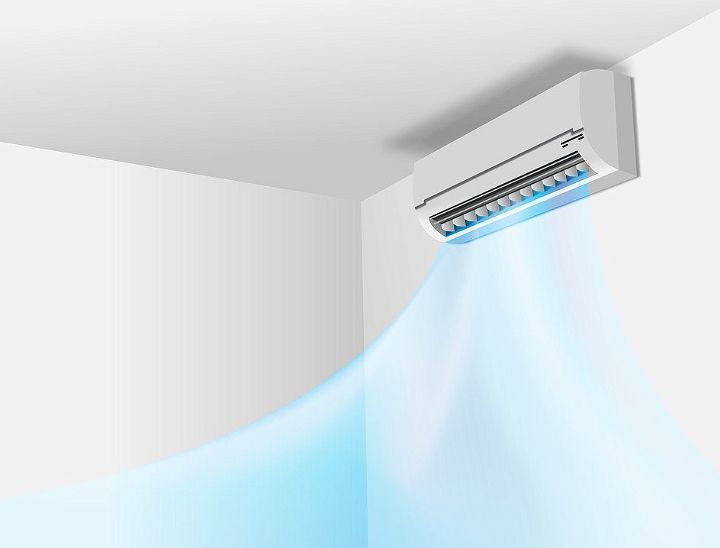Your air conditioning system needs yearly maintenance to enable it to keep on delivering optimal service to you. It’s necessary to get a technician to give your air conditioner a tune-up at least once a year. A tune-up simply means that the air conditioner will be examined to make sure it is working as efficiently as possible.
The main objectives of the AC Tune-Up are to extend the lifespan of the system and to ensure that it’s working at its full potential. Always consult with a licensed and trained technician to ensure the tune-up is carried out properly.

What Happens During an AC Tune-Up?
The HVAC specialist needs to ensure that all the parts of the air conditioner are operating correctly and efficiently. Each component of the system will be adjusted, cleaned, and tested as part of the inspection.
Maintenance prevents breakdowns and increases the system’s lifespan, by preventing corrosion and dirt. There are several procedures involved in the tune-up:
- Cleaning the condenser coils is one of the main processes that take place during the tune-up procedure. The technician will first turn off the AC and the thermostat. Then he will examine the coils and clean them with a coil brush.
- The technician will also look at the evaporator coil that is placed above your air conditioner. The function of this coil is to absorb the heat from the air in your home. When the air passes over this evaporator coil, it is cool enough to be sent back into your house. You will experience problems with your unit if this coil becomes dirty, frozen or it starts leaking.
- The HVAC specialist will recalibrate your thermostat or change its batteries, if necessary.
- The technician will clean the drain line of the AC to boost its efficiency and to prevent clogging. The drain line will be flushed with vinegar to destroy mildew, algae, and mold, and to prevent more from growing. You should also flush the system’s drain with vinegar at least once a month.
- The HVAC technician will also perform any repairs or replacements required. You should also check your system regularly for faulty wires or cracks, as they tend to wear out after years of use.
- If your AC does not seem to be working at maximum efficiency and your electricity bills are going up, you may need more Freon refrigerant. The level of Freon will usually only drop as a result of a leak. A technician will check these levels during the tune-up to ensure they are adequate for the upcoming hot season.
- During a tune-up, a technician will also evaluate and clean the drain pan. The drain pan is located under the evaporator coil. The pan collects the residual moisture that forms and drips off the coil when warm air passes over the old evaporator coils. By collecting the moisture, the pan protects other parts of your system from damage. It’s vital to check the drain pan for holes, cracks, and mold. Also, check that it’s in the correct position.
- Finally, the AC technician will make sure your system’s blower motor is functioning properly and it’s clean and in a good condition. The blower motor’s function is to draw air from your house and push it over the evaporator coil.
Remember that the system’s air filters should also be replaced every two or three months. If you’re going to replace the filters yourself, make sure that you use the right size and type. You must also use the correct procedure to replace them.
The Benefits of a Tune-Up
Your AC needs regular maintenance so that you can have issues addressed before they become serious. Regular maintenance also extends the lifespan of your unit and prevents expensive repairs down the line. A well-maintained system should last you up to 15 years.
If you’re fortunate, regular tune-ups may also help you avoid repairs altogether. Your energy bills will likely be lower as well, as regular tune-ups help your system work more efficiently.
Finally, regular maintenance ensures your warranty remains valid. Most companies won’t provide you with replacement parts if your unit wasn’t maintained by an HVAC technician. You can check your warranty certificate to confirm this.
Prevention Is Key
Some common problems are preventable if you have regular maintenance done on your system. Here are some of the problems you can avoid:
- If your system is not blowing cold air, your HVAC technician is likely to figure this out during a tune-up. The reasons could be anything from a clogged filter to a faulty thermostat.
- Your AC also shouldn’t freeze up if it’s regularly maintained. If your system’s condenser, refrigerant line-set, or indoor coil is coated in frost, you won’t get cold temperatures inside your home. This problem could be caused by different factors such as a malfunctioning blower motor, or even a dirty filter.
- A regular tune-up will ensure you don’t get any unpleasant smells from your unit. Mold and electrical connection issues will be addressed and cleaned during the tune-up. A yearly tune-up is also great for your unit’s overall hygiene.
- During maintenance, the wiring of your thermostat is inspected and adjusted. You should not have issues with the system not blowing out enough cool air.
- Air filters are checked and changed. This is a simple process, but a dirty air filter could cause you not to get enough cold air from your system.
- You can prevent high electricity bills as a result of short cycling. Short cycling happens when the AC turns on and off quickly. If short cycling continues, you will eventually have to replace your system, as it will wear out the compressor. During the tune-up, the technician will sort out the factors that are contributing to the short cycling.
Final Thoughts
If you find that your home is never as cool as you like, but you still have high energy bills, the time has probably come to replace your system. Regular maintenance will extend the lifespan of your AC unit, but eventually, it will work out more cost-effective to have it replaced than to have it continuously repaired.




